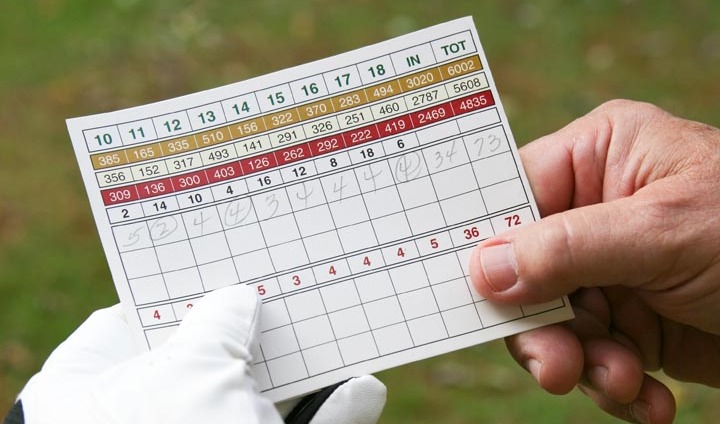Rose Tinted Glasses
Posted on 28th April 2019 at 17:51
I’ve just come off the course having played 13 holes due to severe rain and winds that for many cases golfers with the wrong attitude would be fuming and angry at trying to keep dry and their umbrella from turning inside out! Anyway, me and my partner Laurie had a great ding dong of a match with yours truly winning by one – oh well the drinks were on me again!
Is your glass half empty or is it half full – well that depends on your attitude to life. So, what is this thing called ‘attitude’. Well according to the Cambridge English dictionary its ‘a feeling or opinion about something or someone, or a way of behaving that is caused by this’.
When I work with clients, I often use a number of quotes that I’m hoping will assist the client to shift his/her attitude or state of mind. I never know whether it will work or not until I say it! So, today I was reminded of the quote from the late Dr. Wayne W Dyer “change the way you look at things, and the things you see will change’. Well, today’s game was more about having a positive attitude to the weather, which we had no control over – only our reaction good or bad depending on our attitude. Anyway, the sun is always shining somewhere!
So, how do you can change your attitude when playing golf and things are not going as well as you would hope. A whole range of psychological factors help to construct a person’s attitude i.e. values, beliefs, emotions, choices etc. and all these factors can be habit forming. However, for the golfer this is where routine is key to help build a strong habitual mental attitude and the following keys can help you build a positive attitude to your game:
• Always use the two-box routine when taking every shot
• As you walk between each shot keep your head up and eyes level with the next flag
• Where possible place you bag or trolley behind you at address – this helps you to stop changing your mind about the club selection
• Remember to breathe deeply and slowly to keep calm
• Use anything else that will enable you to have the right mental attitude i.e. a great golfing memory (hole-in-one, winning, playing a great course with great company etc.)
Use whatever it takes to go into and play with a positive mental attitude so JFDI as golf gets much easier and enjoyable. There’s less stress and anxiety which then allows you to focus and execute a free-flowing swing on the ball. Remember you only have control on yourself!
Until next week - keep it on the fairway ...



